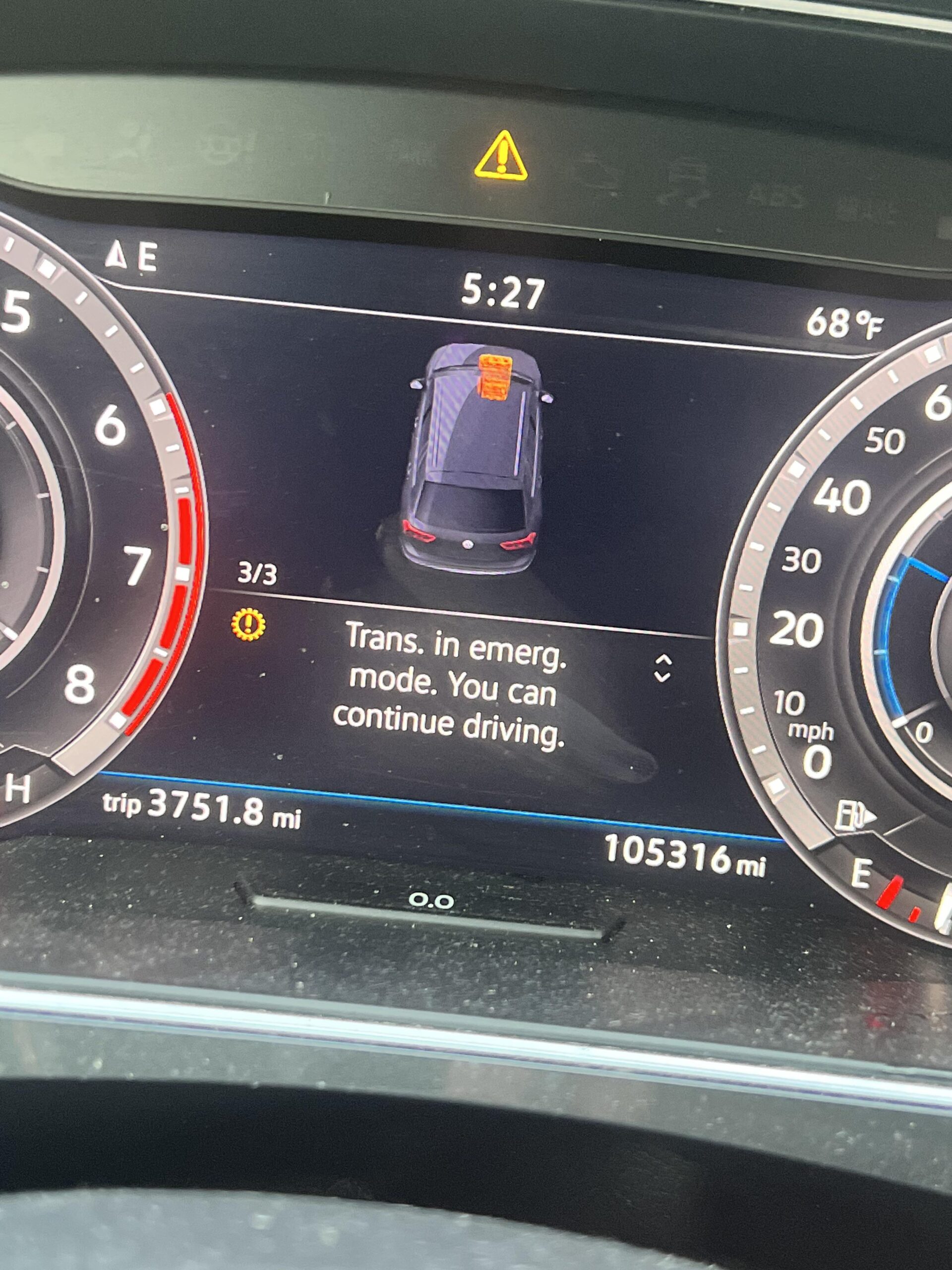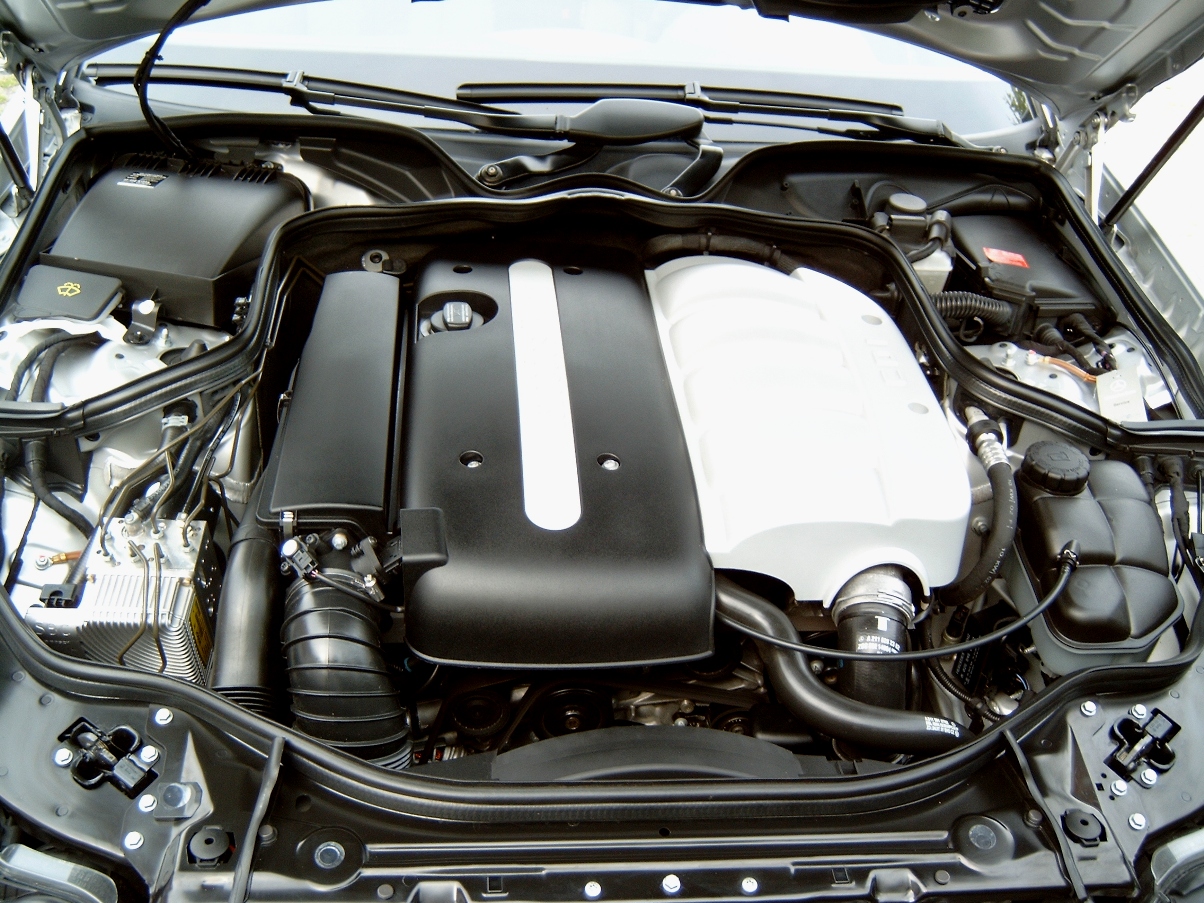Your car’s dashboard serves as a communication hub, relaying important information to you.
It notifies you when the fuel level is low, indicates your speed, and even prompts you to fasten your seatbelt.
Amidst these conspicuous indicators, there’s another crucial gauge that often goes unnoticed, yet it holds significance.
This gauge is the RPM gauge, also referred to as the tachometer, designed to measure the engine’s revolutions per minute (RPM).
At idle, the engine completes approximately 10 revolutions or more per second.
Due to this high speed, the gauge presents the counts in multiples of 1,000.
A properly functioning vehicle typically registers around 1,000 RPM.
Deviation from this norm, whether the RPMs drop below or rise above the standard range, particularly if the car vibrates at idle, signals an underlying issue.
Important Post: What Do You Do If You Accidentally Added Brake Fluid in Power Steering?
Why does the car shake when idle?
The presence of vibrations in your car when idling can be attributed to the engine’s condition. A smoothly idling engine signifies an optimal blend of fuel and air, enabling it to generate the necessary power for crucial systems like the cooling system, power steering, air conditioner, and electrical components.
The culprit behind car vibrations at idle is often rough idling. If your vehicle exhibits idling problems, manifesting as unusual vibrations or a sluggish sensation—commonly referred to as rough idling—interpret it as a distress signal from your car.
It indicates that a component has either failed or is on the brink of failure, demanding prompt attention. Delaying the resolution of these issues might lead to being stranded or facing substantial repair costs.
Rough idling not only diminishes performance and fuel efficiency but can also result in challenges such as difficulty starting, fluctuating RPMs, and potentially signal more significant engine problems in the future. Addressing these concerns promptly is essential to avoid more severe complications.
What are the reasons why the car shake when idle?
Here are factors that can lead to engine vibrations, including broken motor mounts, misadjusted or worn-out belts, faulty fuel intake, spark plug issues, and loose or disconnected hoses.
-
Broken Motor Mounts
Motor mounts play a vital role in securing the engine to the vehicle. If these mounts become broken or disconnected, they can result in noticeable shaking while the car is in motion.
To diagnose this issue, observe whether the shaking decreases when the car is in neutral, indicating potential motor mount problems.
Timely detection and repair of broken motor mounts are essential to prevent further damage to the engine and maintain overall vehicle stability.
-
Misadjusted or Worn Out Belts
The timing belt and serpentine belt, among others, are critical components that, when misadjusted or worn out, can contribute to engine vibrations.
Loose or deteriorated belts may not only cause vibrations but can also impact the functionality of other engine parts, leading to unusual noises.
Regular inspection by a mechanic ensures that belts are properly adjusted and in good condition, preventing potential issues that may affect engine performance.
-
Faulty Fuel Intake
A dirty or faulty fuel intake system can disrupt the smooth operation of the engine. Over time, the fuel intake system may become clogged, delivering uneven amounts of fuel to the engine.
This irregular fuel supply can result in engine shaking. Routine maintenance, such as cleaning or replacing air filters and inspecting the fuel intake system, helps ensure a consistent and even flow of fuel to the engine, minimizing the risk of vibrations.
-
Spark Plugs
Worn-out spark plugs are a common culprit behind engine shaking. Dirty or deteriorated spark plugs may fail to produce the necessary spark for proper fuel ignition, leading to engine misfires.
Replacing spark plugs is a relatively inexpensive maintenance task that can significantly improve engine performance and eliminate vibrations.
-
Loose or Disconnected Hoses
Vacuum hoses are integral components that connect various parts of the engine, facilitating the removal of exhaust fumes. When hoses become loose, broken, or disconnected, they can cause significant engine shaking.
Issues associated with malfunctioning hoses include engine misfires, power loss, stalling, and potential shutdowns. Regular inspection and maintenance of hoses are essential to prevent such problems and maintain overall engine health.
-
Dirty fuel injectors
Modern vehicles are equipped with high-pressure fuel injectors designed to dispense the precise amount of fuel into your engine’s cylinder for optimal performance. Over time, carbon buildup from the combustion process can clog the tiny nozzles in your fuel injector.
Blocked fuel injector nozzles, also known as pintles, can disrupt the proper delivery of fuel for combustion, leading to engine shaking during idle. Despite the availability of fuel injector cleaners, the most effective solution involves professional removal, cleaning, or replacement of the clogged fuel injector.
-
Clogged air filter
Your engine’s air filter plays a vital role in trapping contaminants and debris that could harm the engine. However, over time, the filter accumulates dust, particles, and dirt, hindering its ability to function properly.
A clogged air filter obstructs the airflow necessary for adding air to the fuel mixture, affecting proper combustion. This obstruction may contribute to your car shaking when idle. Regular replacement of the air filter, approximately every 30,000 miles, is recommended to ensure optimal engine performance.
-
Vacuum leak
Several hoses in your vehicle contribute to creating a vacuum that allows air to move to the engine. If any of these hoses become loose, disconnected, or damaged, excessive air can be introduced into the air/fuel mixture.
A loose or damaged hose can lead to misfires or shaking during idling. Seeking professional assistance is necessary to replace or reattach damaged hoses and restore the proper functioning of the vacuum system in your vehicle.
-
Failed oxygen sensor
The oxygen sensor measures the oxygen levels in your exhaust, providing crucial information to your vehicle’s computer for optimal fuel-to-air ratio calculations.
Over time, oxygen sensors can fail due to carbon deposits, aging, and exposure to high temperatures. A malfunctioning oxygen sensor can lead to inaccurate information sent to the computer, resulting in engine shaking during idle. Replacement is typically required, as attempts to clean the sensor provide only a temporary fix.
Related Post: Why Does My Car Has Low RPM At Idle: Causes & Solutions
Is it normal for car to shake when idle?

In general, a slight, consistent vibration when your car is idling can be considered normal to some extent. However, the degree of shaking and the underlying causes can vary. Here are some points to consider:
-
Mild Vibration
It’s common for cars to have a subtle vibration when idling, especially in larger or more powerful engines. Factors such as the type of engine, transmission, and even the design of the vehicle can contribute to this mild shaking.
-
Engine Mounts and Balance
The engine mounts are designed to absorb vibrations, but if they are worn or damaged, it can lead to increased shaking. Additionally, the balance of the engine’s internal components can affect idle smoothness.
-
Fuel Quality
The quality of the fuel can influence engine performance. Poor-quality fuel or fuel with contaminants may lead to irregular combustion and contribute to shaking.
-
Routine Maintenance
Regular maintenance, including replacing spark plugs, cleaning fuel injectors, and ensuring proper ignition system function, can help maintain smooth engine operation and reduce vibrations.
-
Environmental Factors
Environmental conditions, such as extreme temperatures or high humidity, can affect engine performance and contribute to slight vibrations.
However, if the shaking is severe, inconsistent, or accompanied by other symptoms like unusual noises, warning lights, or a rough-running engine, it could indicate an underlying issue that needs attention. Potential causes for more pronounced shaking include:
-
Misfiring Cylinders
When one or more cylinders in the engine are not firing correctly, it can cause significant vibrations.
-
Faulty Ignition System
Issues with the spark plugs, ignition coils, or other ignition components can lead to poor combustion and shaking.
-
Vacuum Leaks
Air leaks in the engine’s vacuum system can disrupt the air/fuel mixture, causing rough idling.
-
Engine or Transmission Issues
Problems with the internal components of the engine or transmission can result in noticeable vibrations.
If you’re experiencing persistent or severe shaking when your car is idle, it’s advisable to have your vehicle inspected by a qualified mechanic. They can diagnose the specific issue and recommend the necessary repairs or maintenance to restore smooth engine operation. Regular maintenance and addressing issues promptly can help keep your car running smoothly and prevent more significant problems in the long run.
FAQs – Why Does The Car Shake When Idle?
Can Spark Plugs Cause Car to Shake?
Yes, worn or faulty spark plugs can cause a car to shake. Spark plugs play a crucial role in igniting the fuel-air mixture in the engine. If they are dirty, worn, or not functioning correctly, it can lead to incomplete combustion, misfires, and engine shaking.
Why Does My Car Shake When I’m Just Sitting?
Several factors can cause a car to shake when idling, including issues with the engine mounts, fuel system, ignition system, or vacuum leaks. If the shaking is consistent and pronounced, it’s recommended to have the vehicle inspected by a mechanic to identify and address the specific problem.
What Causes Rough Idle at Low RPM?
A rough idle at low RPM can be caused by various factors, such as spark plug issues, fuel system problems, vacuum leaks, or problems with the ignition system. Diagnosing and addressing the specific issue is essential to restore smooth engine operation.
Why Is My Car Shaking When I Idle and No Power?
Shaking at idle accompanied by a lack of power can be indicative of issues with the fuel system, such as clogged fuel injectors or a faulty fuel pump. Additionally, problems with the ignition system, including spark plugs or the ignition coil, may contribute to these symptoms.
How Do I Stop My Car from Vibrating When Idle?
To stop your car from vibrating when idle, consider the following steps:
- Ensure regular maintenance, including spark plug replacement and cleaning fuel injectors.
- Address issues with engine mounts, as worn or damaged mounts can contribute to vibrations.
- Check for vacuum leaks and have them repaired.
- Inspect the ignition system for problems with spark plugs, ignition coils, or other components.
Can Alternator Cause the Car to Vibrate?
While alternators primarily generate electrical power, they are not typically a direct cause of vibrations. However, problems with the alternator’s pulley or mounting can indirectly contribute to vibrations. If there’s a concern about the alternator, it’s advisable to have it inspected by a professional.
Why Does My Car Shake When I Start Then Run Fine?
Shaking upon starting that resolves as the engine warms up may be normal in some cases. However, if the shaking persists or is accompanied by other issues, it could be related to factors such as cold-start misfires, fuel system problems, or ignition issues.
What Causes a Car to Shake a Little?
A slight shake when idling may be normal, but excessive or persistent shaking could be due to issues like worn engine mounts, misfiring cylinders, or problems with the fuel and ignition systems. Regular maintenance and prompt attention to issues can help prevent or address these concerns.
Conclusion
Recognizing the potential triggers behind a car’s idle shaking is crucial for sustaining overall vehicle efficiency.
While a modest vibration may be deemed acceptable, prolonged shaking often indicates underlying concerns with components like spark plugs, engine mounts, or the fuel system.
Consistent maintenance, periodic checks, and swift resolution of identified issues contribute to a seamlessly operational vehicle.
Staying attuned to these commonplace problems empowers car owners to uphold optimal performance, mitigating the risk of disruptive vibrations during idle moments.




